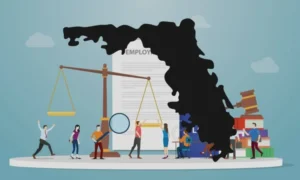Concealed carry laws, which govern the carrying of concealed firearms in public, vary widely across different jurisdictions. While these laws grant responsible citizens the right to protect themselves and others, they also come with a set of responsibilities. It’s crucial to understand the legal framework and regulations surrounding concealed carry to avoid potential weapons charges. In this article, we will delve into the key aspects of concealed carry laws and provide practical tips on how to navigate them safely and legally. Select here for legal help concerning weapons charges.
Understanding Concealed Carry Laws
Concealed Carry Permits
Concealed carry permits, also known as concealed weapons permits (CWPs) or concealed handgun licenses (CHLs), are issued by state or local authorities. These permits grant individuals the legal right to carry a concealed firearm in public places.
Shall-Issue vs. May-Issue States
Concealed carry laws fall into two main categories:
Shall-Issue States
In these states, authorities must issue a concealed carry permit if the applicant meets specific criteria (e.g., no felony convictions, completion of required training). The burden of proof falls on the issuing authority to deny a permit.
May-Issue States
In these states, authorities have discretionary power to issue or deny concealed carry permits based on their own judgment, even if the applicant meets basic eligibility requirements.
Constitutional Carry States
Some states have adopted a constitutional carry policy, also known as permitless carry, which allows individuals to carry concealed firearms without a permit. However, these laws often have age restrictions and may not apply to all types of firearms.
Restricted and Prohibited Areas
Even with a valid concealed carry permit, there are places where carrying a concealed weapon is prohibited. These may include schools, government buildings, airports, and private properties that post “No Firearms Allowed” signs.
Tips for Avoiding Weapons Charges
Familiarize Yourself with Local Laws
Understanding the specific concealed carry laws in your jurisdiction is essential. Laws can vary significantly from state to state and even within different municipalities. Be aware of the requirements for obtaining a permit and any restrictions on where you can carry.
Obtain the Necessary Permit
If your jurisdiction requires a concealed carry permit, it’s crucial to go through the proper application process. This often involves background checks, fingerprinting, and completion of firearm safety courses.
Keep Your Permit Updated
Ensure that your concealed carry permit is current and valid. Keep track of expiration dates and renewal requirements to avoid carrying without proper authorization.
Know Where You Can and Cannot Carry
Familiarize yourself with restricted and prohibited areas where carrying a concealed weapon is not allowed. Ignorance of these restrictions is not a valid defense if you are charged with a weapons offense.
Use a Proper Holster
If you choose to carry a concealed firearm, invest in a quality holster designed for concealed carry. It should cover the trigger guard, secure the weapon, and allow for a safe draw.
Practice Responsible Firearm Safety
Always treat firearms with the utmost respect and adhere to basic safety rules, such as keeping the gun pointed in a safe direction, keeping your finger off the trigger until you’re ready to shoot, and ensuring the firearm is unloaded when not in use.
Avoid Altercations and Disputes
Carrying a concealed firearm should not make you feel invincible. Avoid confrontations whenever possible and prioritize de-escalation techniques. Using a firearm in a dispute should always be a last resort when facing imminent danger.
Cooperate with Law Enforcement
If you are stopped by law enforcement while carrying a concealed weapon, it’s crucial to comply with their instructions. Inform the officer immediately that you are carrying a concealed firearm and follow their guidance.
Conclusion
Concealed carry laws grant citizens the right to protect themselves and their loved ones, but they also come with significant responsibilities. Understanding and adhering to these laws is crucial to avoiding weapons charges and ensuring the safety of yourself and those around you. It is recommended to seek legal advice or consult with local authorities if you have any questions or concerns about concealed carry laws in your jurisdiction. By being informed and responsible, you can exercise your right to carry while minimizing the potential legal risks.



































